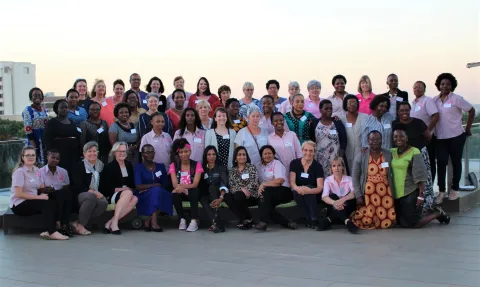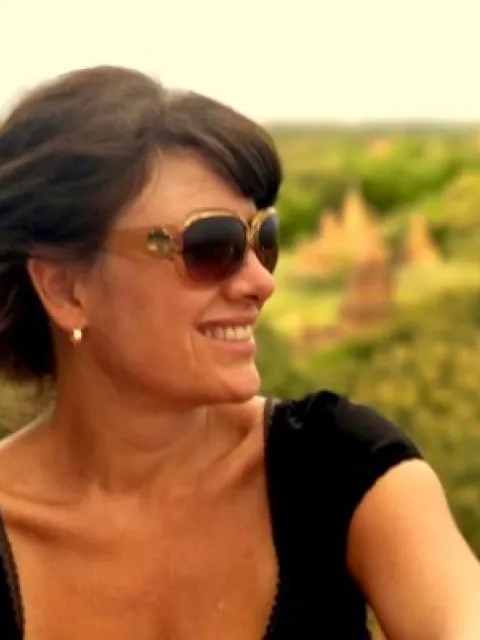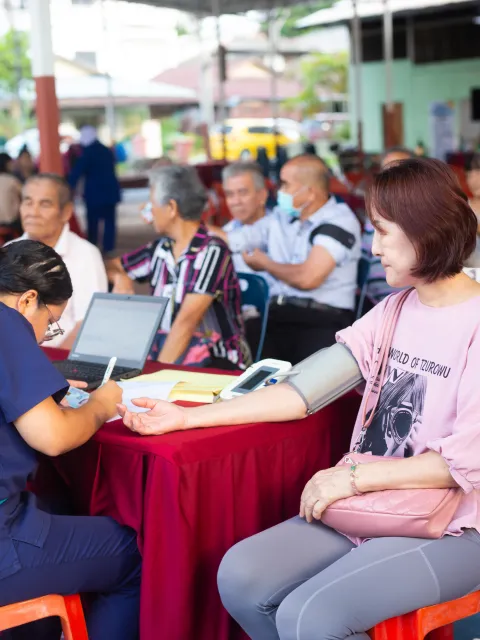Breast Cancer Initiative 2.5 five years on

Connect. Advocate. Advance.
Breast cancer is the most prevalent cancer among women worldwide. Estimates suggest that 5.8 million women worldwide will die from breast cancer by 2025, with a disproportionate number of these deaths occurring in low-resource settings.
Higher breast cancer case fatality rates in low-resource settings have been attributed to late-stage diagnosis due to patient and health system delays, limited access to treatment, and a lack of awareness regarding the benefits of early detection and treatment. To address this growing problem, several organisations* engaged in global breast health convened in 2014 to brainstorm how their combined resources and expertise could address this growing problem. This resulted in the 2015 launch of Breast Cancer Initiative 2.5 (BCI2.5), a global campaign to reduce disparities in breast cancer outcomes and improve access to breast health care for 2.5 million women by 2025. It was an aspirational goal, and there was no defined road to achieve this, but without a goal, there would be nothing for which to aim.
BCI2.5 has grown into a network of partners and like-minded organisations, including UICC members, who share a commitment to reduce disparities in breast cancer outcomes—it is not an institution itself. It is a mechanism and a platform for advocacy, collaboration and information dissemination to increase the effectiveness of our independent and collective efforts while catalysing greater global investment and commitment to breast health care.
Together we are better equipped to develop clear strategies for advancing the prevention, diagnosis and treatment of breast cancer. Policymakers, clinicians and advocates need tools, metrics, roadmaps and evidence-based, resource appropriate frameworks to guide decision making. Over the past five years, we drew on our collective expertise and global networks to deliver on this unmet need. The path was not always clear, but through active engagement with stakeholders around the world we have developed, tested and refined a series of tools and resources:
- Global Breast Health Analytics Map (GloBAM): This online tool was developed by the Breast Health Global Initiative (BHGI) to provide a centralised interactive data platform for accessing, comparing and analysing data on breast cancer incidence and mortality, health spending and resource level data by country drawn from IARC, WHO, IHME and World Bank.
- Situational Analysis Tools: BHGI and Susan G. Komen collaborated to develop, test and refine a range of breast health assessment tools which have been used in Tanzania, Panama, Brazil, and multiple countries in the Caribbean and West Africa. These tools are available for use upon request via the BCI2.5 website.
- Knowledge Summaries for Comprehensive Breast Cancer Control: UICC, NCI Center for Global Health, BHGI, PAHO and WE CAN jointly produce this set of reference documents to help guide policymakers, advocates and clinicians in developing appropriate programs and policy proposals.
- Forums: NCI Center for Global Health convened a series of regional cancer control leadership forums (in-person and web-based using the Project ECHO methodology) which featured the above tools and resources. In 2018 BHGI hosted the 6th Global Summit, on improving breast health care through the phased implementation of resource stratified guidelines. The consensus articles, along with additional manuscripts, will appear in supplement forthcoming from Cancer in April 2020.
- Case Reports: BHGI and Susan G. Komen developed case reports for Tanzania, Panama, Brazil and others mapping a strategy for phased implementation of resource-stratified guidelines informed by a situational analysis and tailored to the needs and resources available.
- Master Course: UICC, WE CAN and BHGI collaborated in the development and implementation of a Master Course for SPARC awardees held in conjunction with the 2017 and 2019 World Cancer Congresses.
- Website: BHGI created a BCI2.5 website hosted by Fred Hutch to provide access to the KSBC, GloBAM and other resources.
As the BCI2.5 campaign heads into its next five years the focus will shift from developing tools and resources to disseminating knowledge, sharing lessons learned, and strengthening the BCI2.5 network through increased engagement with individuals, organisations, governments and multilateral organisations. Now that we have a robust toolbox of evidence-based strategies and frameworks for improving outcomes, it is time to commit new energy to cultivate champions and increased political will to take real steps toward investing in women’s health across the life course. This can only be done by sharing our successes and failures and demonstrating that improving cancer outcomes in low-resource settings is feasible. It will also require stepping out of the cancer community to build new collaborations, breaking disease silos and engaging the private, public and social sectors. To achieve this BCI2.5 will increase its outreach efforts and develop new opportunities to connect, share, integrate, and advocate for action and resource mobilisation to reduce disparities in breast cancer outcomes.
To stay connected and learn more about how you can advance the campaign and share your lessons learned and contributions to advancing cancer care for women sign up at www.bci25.org. We look forward to hearing from you.
*BCI2.5 initiating organizations include the American Cancer Society, Breast Health Global Initiative (BHGI), Harvard Global Equity Initiative, the Norwegian Cancer Society, Susan G. Komen for the Cure, US National Cancer Institute Centre for Global Health, the Union for International Cancer Control (UICC) and the Women’s Empowerment Cancer Advocacy Network. The BCI2.5 Secretariat is hosted by BHGI and WE CAN in Seattle, Washington.
Last update
Tuesday 25 February 2020Share this page


